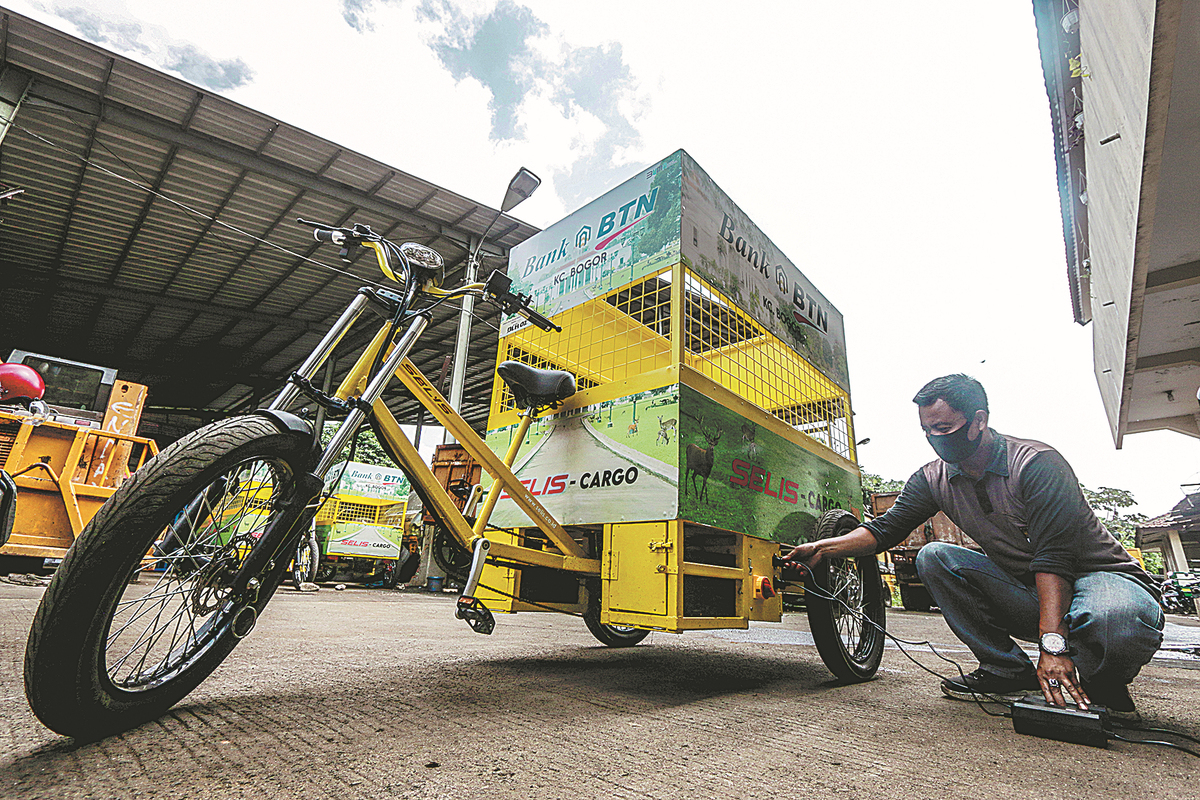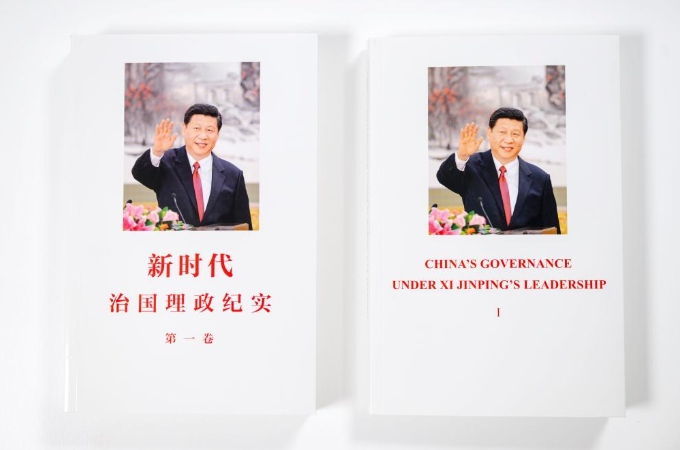Indonesia expands green economy with e-vehicles
Source: China Daily | 2022-06-16 | Editor:Ines

Electric vehicle manufacturing is emerging as one of the key sectors in the Indonesian economy, with the nation's government courting foreign investments and promoting green growth.
Indonesian President Joko Widodo met with Tesla CEO Elon Musk on May 14 to persuade the world's biggest EV maker to set up shop in Southeast Asia's largest economy.
Widodo, whose country currently chairs the G20, has also invited Musk to attend a summit of the bloc that will be held on the resort island of Bali in November.
Tesla is just one of several companies that Indonesia is eyeing in its bid to develop an EV industry. In March, Hyundai opened an EV manufacturing plant in West Java-the South Korean automaker's first factory in Southeast Asia.
Indonesia has also imported 30 electric buses from China, and these are now used in the capital Jakarta.
Analysts said Indonesia's huge nickel and copper reserves-among the world's largest-make the country an investment destination for EV manufacturers. Nickel and copper are needed to make lithium-ion batteries that power EVs.
Indonesia has also been offering several incentives to encourage investment in EV manufacturing, including tax allowances and holidays, as well as tariff cuts for imported machinery and materials used in EV production.
The Indonesia Battery was established last year to oversee the development of the nation's battery manufacturing industry.
Manufacturing lifeline
Easy access to the materials used in making batteries is the lifeline of an EV manufacturer, said Fabby Tumiwa, executive director of the think tank Institute for Essential Services Reform in Jakarta.
Tumiwa said EV manufacturers want to secure the materials source needed to produce batteries and this is why it makes sense for EV companies to invest in Indonesia.
Apart from providing resources and fiscal incentives, Indonesia also offers a huge consumer market for foreign EV investors.
Indonesia aims to produce 400,000 electric cars in 2025, with the figure reaching 5.7 million by 2035. To encourage local consumers to buy EVs, the country offers tax breaks and is building more charging stations.
While using EVs can help reduce emissions, the extraction of minerals needed to make batteries harms the environment and local communities, according to environmentalists.
Melky Nahar, head of campaigns at the Mining Advocacy Network, said mining is "destructive" and has caused flooding in villages, and miners also suffer from poor working conditions.
Aulia Hakim, from the Indonesian Forum for Environment, said people in the local community understand that mining is a useful source of employment, "but people also suffer from environmental damage".
You May Like
-
Indonesia aims for green economy driven by electric vehicles
Electric vehicle manufacturing is emerging as one of the key sectors of the Indonesian economy, with the nation's government courting foreign investments and pr...
InKunming 2022-06-07 -
Box girders erected on sections of Indonesia's Jakarta-Bandu...
All 343 box girders in Bandung direction of Indonesia's Jakarta-Bandung High-Speed Railway (HSR) were completed on Wednesday, a week ahead of schedule, which ma...
InKunming 2022-05-26 -
Indonesia's inflation rises to 3.47 pct in April
Indonesia's inflation rate, as measured by the consumer price index, rose to 3.47 percent year on year in April, the highest since August 2019, the Statistics I...
InKunming 2022-05-10 -
Moderate earthquake hits eastern Indonesia
A 5.7-magnitude earthquake jolted Indonesia's eastern province of Papua early on Monday, the meteorology, climatology and geophysics agency said.
InKunming 2022-04-25 -
Scene of fire in Gembrong Market area in Jakarta, Indonesia
Photo taken with a mobile phone shows the scene of a fire in Gembrong Market area in Jakarta, Indonesia, on April 24, 2022.
InKunming 2022-04-25 -
People view illuminated installations during holy month of R...
People view illuminated installations during the holy month of Ramadan in Surakarta, Central Java, Indonesia
InKunming 2022-04-11 -
Local restaurant in Indonesia draws tourists with Javanese, ...
Warung Tuman restaurant is locally famous for its Javanese and West Sumatra cuisines. Local people and people from nearby cities such as Jakarta come here to en...
InKunming 2022-04-02 -
Indonesia's Bali to host 144th assembly of IPU
Indonesia's resort island of Bali is ready to host the 144th Assembly of the Inter-Parliamentary Union (IPU) and its related meeting from Sunday to Thursday.
InKunming 2022-03-18 -
Indonesia offers investment projects worth 10.8 bln USD
Indonesia has launched 47 sustainable investment projects worth 155.12 trillion rupiahs (about 10.8 billion U.S. dollars), Minster of Investment Bahlil Lahadali...
InKunming 2022-03-18 -
Chinese, Indonesian presidents hold phone talks
Chinese President Xi Jinping on Wednesday held a phone conversation with his Indonesian counterpart, Joko Widodo.
InKunming 2022-03-17







